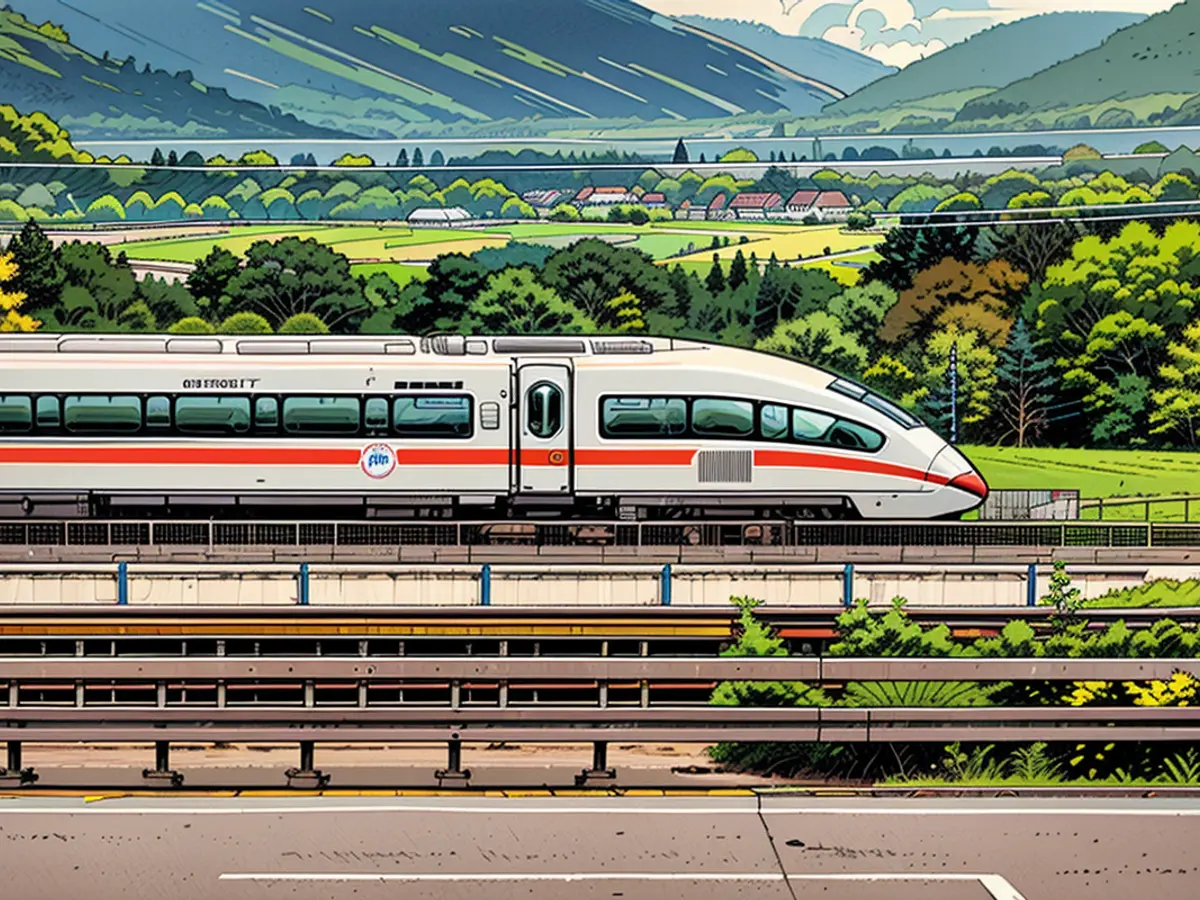The process of securing train tickets now requires twice as long.
Deutsche Bahn is broadening the window for booking advanced train tickets. Instead of the existing six-month window, tickets will soon be available for booking up to a year in advance, as the state-owned company announced. This change will take effect on October 16, coinciding with the introduction of a new timetable, with trains starting to run according to it from mid-December.
This expansion of the advance booking period is part of various initiatives Deutsche Bahn is undertaking to boost the appeal of long-distance travel. 2024 was a tough year for the company, plagued by strikes, severe weather events, and deteriorating infrastructure, which significantly impacted long-distance traffic, according to Michael Peterson, the board member in charge of long-distance traffic. "We've lost our customers' trust," Peterson admitted.
The demand for long-distance travel was "exceptionally high" in 2023, but the challenges faced this year have put a damper on that demand, Peterson said. In August, the punctuality of long-distance trains was only 60.6 percent, a figure Peterson described as "disappointing." The company aims to increase punctuality to more than 75 percent by 2027, Peterson stated, emphasizing that a reliable infrastructure is crucial for this.
Faster ICE trains
Improving infrastructure is a priority for Deutsche Bahn, with construction work planned for numerous important routes in the coming years, focusing on 41 key corridors. Coordination between construction projects and the timetable will be improved in the future. To enhance punctuality, ICE-4 trains, representing around 60 percent of seats in long-distance trains, will be allowed to reach a maximum speed of 265 km/h instead of the current 250 km/h. This boost could help compensate for delays on certain routes.
Peterson also teased plans for an expansion of long-distance services in the coming years. With the network's capacity already strained, reducing long-distance services is not a valid solution, as they account for a small fraction of rail traffic in Germany.
Peterson mentioned that there will be more Sprinter connections in the 2025 timetable, implying ICE journeys with fewer stops between starting and destination stations. By December 2026, 20 major German cities will be connected to the nationwide long-distance network with an ICE half-hourly service, Peterson revealed.
Canceling underutilized trains
While Deutsche Bahn's white and red long-distance trains are solely operated and financed by the company, the regional transport system operates differently. In the regional sector, the federal states order trains via transport associations, which typically subsidize services to connect regions. According to internal documents, Deutsche Bahn only makes a profit on main long-distance routes. The remaining 70 percent of routes in the supplementary and regional network primarily run at a loss.
Transport Minister Volker Wissing and other officials have called for Deutsche Bahn to maintain its long-distance services before regional elections in East Germany. The sector was urged to increase the occupancy of its trains through improved offerings. However, long-distance trains are also losing business to cheaper regional trains, due to the Germany ticket in the regional transport sector.
In some cases, poorly utilized IC or ICE trains may be replaced by regional trains, Peterson said, emphasizing that this decision will be made in consultation with state representatives. It often makes no sense to operate an empty long-distance train on a route where a regional train is also running.
The expansion of the advance booking period for train tickets is one way Deutsche Bahn is trying to boost the appeal of long-distance travel, as the company aims to regain the trust of its customers following a challenging year in 2024.
The demand for long-distance travel was high in 2023, but a series of challenges led to a decrease in demand. To improve punctuality, ICE-4 trains will be allowed to reach a maximum speed of 265 km/h instead of the current 250 km/h, which could help compensate for delays on certain routes.








